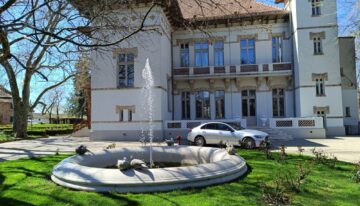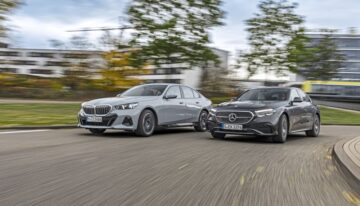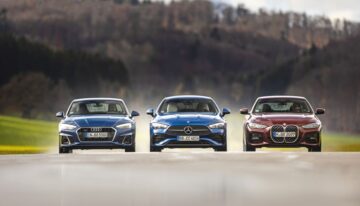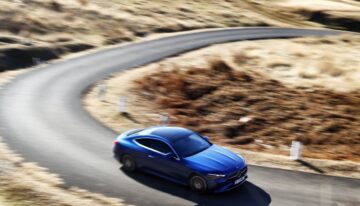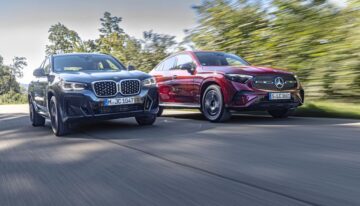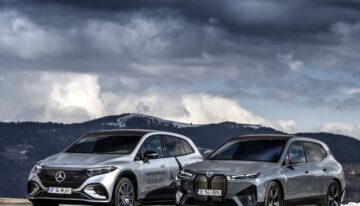With the occasion of Geneva motorshow we realized an interview with Dieter Zetsche, Daimler CEO, about the most interesting car industry themes.Â
Your goal is to become No. 1 premium carmaker until 2020. Why is so important to be No. 1 premium carmaker?
When I said that there was quite a gap between the volumes of our competitors and our volumes and our people were convinced that we could not become the best and most successful carmaker without selling the most cars in the premium segment. But I think this does not make sense. Ultimately the customer decide who build the best cars and who offers the best package. So, at the end of the day striving for the highest volume is a secondary target and a consequence of striving for the best offer to the customer. Nobody disagrees in our company that we want – and I think the brand Mercedes requires that  – to strive for the best product with the best characteristics. The last three years shows a significant growth for mercedes but in the same time our net transaction prices have increased and this is prove that we don’t grow by giving away our cars but by creating demand.
Mini has seven models in the former range. Now, the Mini range was restricted to only five models. The current Mercedes compact range has five models. Do you think there is a place for aditional models?
I do believe that C segment has as a competiton 1 Series and 2 Series from BMW and they added further products like a rival for a seven seater B-Class. We are directionally in the same way. We do not intent to reduce our number of compact versions and we will go in the opposite way and with the next generation we will increase the number of versions. Â There are big times for us with more than 600,000 compact cars and still growing in volume for this lifecycle.
Will you continue to use Renault engines in your cars?
We have decided quite some time ago that we would not follow the path of BMW to derivate a three cylinder from a four cylinder for the entry segment and above but to use two different displacements as VW does which still leaves the possibility to develop a modern three cylinder engine. Choosing the strategy with two different displacements we need a volume base and we accomplished these targets together with Renault like BMW did with Peugeot in the past, a partnership which was not succeeded to continue.
You plan to keep growing in Europe in therms of sales. Do you plan to build a new factory in Europe?
For a number of years we were able to grow fast around the globe and this process continue. Of course we have to add capacity because in this moment we are beyond the tehnical capacities with extra shifts and working on Sundays plus other 70,000 units produced by Valmet for us. We continue to grow our production capacities in present in Brazil in China for instance but it might be a time for another investment. It is unlikely to increase the capacity in Germany because the growth does not come from there. If we decide for a new factory there is a very rational process where we try to compare all the different specific aspects like education of labour works, logistics, infrastructure, ease of doing business, distance to suppliers and customers which ultimately gives us an impression of what could be the best location. Certainly, Romania is in this scope.
You have a gearbox factory in Romania.
The factory from SebeČ™ is a good experience for us. Yes, I would say that this factory in Romania offers an advantage for us.
Do you continue to believe in diesel engine after the VW Dieselgate?
With the new 2 liter diesel engine we demonstrate one more time that the diesel engine maintain the benefit of 15-20% of CO2 emission level against the gasoline engine and CO2 emission continues to be an extremely important yardstick for us. The disadvantage of diesel engines of having high emissions in other fields than CO2 is basically overcome by technology and we reach very low NOx emissions which never seen before and fulfill the most stringent emission norm Euro 6 level 1 and Level 2. So we see no reason to change our plan in this regard and we continue to see relatively high relatively shares of diesel engines in Europe.
Formula 1 season will start very soon. Could you tell us how important were the results of the last two years for the image and success of Mercedes brand?
Well the formula „Win Sunday, sell Monday“ probably never applied. It is more indirect that the Motorsport is a way to influence your brand and first of all when you talk about sponsoring the brand I think it is more natural to go for the Motorsport which is your key business than sponsoring something else. Secondly, there are only few brands which has a such great motorsport history like Mercedes. Therefore at least our experince, current participation in motorsport resonates more with our brand than some other brands which does not have this kind of history. Third, we have developed the system that costs us a third or less of what did cost us four or five years ago. And the same time the results we producing are considerably more satisfying today having 100% our team than in the past when we are only a co-partner. So, overall our brand have developed very positively in recent years. We are seeing much more dynamic, more youthful, more cool. We are very diiffciult to cuantificate all influences but we are very much convinced that motorsport has one relevant role in that. I don’t believe in the cuantification of how many articles were written and how much PR was done but I believe that the ration between the resources we spent and the benefit we get are very positive for us.
You announce the investment in the battery factory in Germany. Do you see battery vehicles or fuel cell vehicles closer to the market ?
We will continue to invest in fuel cell and in smaller series production for fuel cell in the future. The biggest advantage of fuel cell cars against the battery cars is the range and the shorter filling times vs charging times, despite the ratio between filling times for fuel cell and battery charging times was reduced considerably in the recent years. Much more research money are invested in the battery cars than in the fuel cell and this has an impact as well. But on the other hand infrastructure is more difficult for fuel cell vehicles than for battery cars. Last but not least all these efforts ultimately only contribute to CO2 reduction when we provide CO2 free electric power on one hand and hidrogen power on the other hand. With the electric battery cars we know where to go but with hydrogen cars we don’t know yet.
 Do you consider Tesla an important competitor? Do you regret that Daimler sold its Tesla shares?
Today, Tesla is about 50,000 units and overall is not a big competitor. Of course, in certain segments they are very successful and very strong and I have all respect for what they have accomplished. We still have a cooperation with Tesla for the B-Class independent from our fromer quality as a shareholder. WE sold our Tesla with a significant financial gain and taking into consideration the current Tesla share price I do not regret this decision. But this has nothing to do with our respect for Tesla or the possiblity to cooperate with Tesla.








